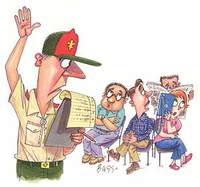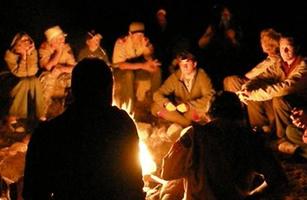 A few weeks ago, our troop had the beginnings of the changing of the guard.
A few weeks ago, our troop had the beginnings of the changing of the guard.
First, the Scouts elected a new senior patrol leader. The winner wasn’t the first one to throw his hat in the ring. In fact, it was one of the other Scouts who decided, maybe at the last minute, to give it a whirl.
I didn’t listen to their stump speeches, but he must have given a good one, because he won the election. I don’t know by how much (I don’t concern myself with such details), but it shows that the message is important. He accepted the challenge of backing up his ideas and putting them in motion, and has been doing a terrific job. Continue reading “Changing of the guard”





